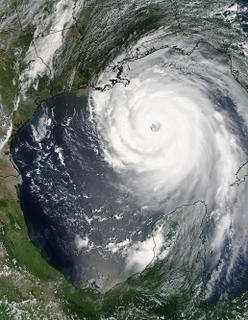The issue of violence in our public schools returns to the forefront as the new school year begins, both here in Wisconsin and nationally. With the
Rice Lake shootings still prominently in everyone's thoughts in this area, the push to lessen such violence takes on a greater urgency than in most years.
One of the most, if not the most, common causes of school violence is the occurrence of bullying, which is a term, first of all, with which I have a disagreement about right from the start. From my perspective, the term "bullying" carries with it a connotation of schoolyard prankishness; a glossing-over, in effect, of the seriousness of the types of behavior that are lumped under this term.
A quick definition, from the
American Academy of Pediatrics:
Bullying includes a range of behaviors that result in an imbalance of power between the aggressor and the victim.7 Such behaviors include not only physical aggression but also verbal harassment and public humiliation (eg, name-calling and spreading rumors). [PEDIATRICS Vol. 112 No. 6 December 2003, pp. 1231-1237]
Clearly, by this definition, bullying is not something to be casually dismissed as just another hurdle that adolescents have to jump on their way to adulthood. Bullying is something much more dangerous and has long lasting consequences.
I find it outrageous that, to this day, the "kids will be kids" view of bullying persists in our culture. Somehow the idea that physical and verbal harassment is in some way excusable, written-off as the mere challenge of learning inter-personal relationship skills or, worse, as some kind of trial by fire for the "real world", has seeped into the common culture here in the Midwest.
Let's discuss that "real world" for a second, shall we? First of all, there is almost no low threshold for the tolerance of violence in the adult world; even the threat of violence perpetrated against another person is punishable under the law and often carries the threat of civil litigation. Not necessarily so in our public schools, where often the punishment could be as minor as a detention after school or loss of extra-curricular activities if the act in question is deemed "minor".
Physical violence is an obvious comparison, but what about emotional violence? Children spend a great deal of their formative years in an environment where tremendous psychological abuse can be heaped on them almost without consequence. Young people being ridiculed by their peers for being poor, unpopular, intellectual, unathletic, overweight, underweight, sexually promiscuous...the list could go on for pages. Harassment of this type often occurs on a daily or even hourly basis for many of our kids, and yet some still explain it away as a "school of hard knocks" approach to social development. Yet, out of these people that would downplay the damage bullying causes, what one of them would put up with this level of harassment in their workplace for one day, even one hour? To say nothing of 13 years!
The good news is that, at least in Wisconsin, the government is recognizing that student-to-student harassment is a problem in need of addressing. Democratic Senator Spencer Coggs, along with Republican Senators Neal Kedzie and Sue Jeskewitz, have introduced legislation that requires Wisconsin public schools to at least draw up some kind of plan for dealing with bullying and its effect on the students. It's a start, a jumping off point to get the issue under more consideration.
Unfortunately, most attempts at hashing out ideas about how to end student harassment tend to center, at least initially, around the tendency to place blame for the occurrence of such behavior. The culprits are many, and while I believe that each of the parties involved do bear some responsibility, I believe that any discussion centering around blame hinders the search for solutions.
The first party blamed is always the bully himself/herself. A certain level of personal responsibility is important, but blaming the adolescent abrogates responsibility for the problem at its root cause, the child's home environment. I don't believe that some people are just born evil and vindictive; that's just an easy way to avoid dealing with emotional and psychological issues. Every child, no matter how maladjusted, has the potential to have positive peer relationships, whether bully or victim. It begins with the establishment of a safe and secure home environment which, in spite of what the wingnuts would have people believe, does not necessarily require one mother and one father in a neo-"Leave It To Beaver" setting. It requires positive role models that can lead by example; be they family, friends, clergy, etc.
The second party blamed is the teacher, which I generally find grossly unfair. With the possible exception of a few archaic-minded athletics teachers I've known, I have yet to meet any educator that feels bullying is an acceptable practice in the classroom. However, a teacher's primary responsibility is, no surprise, to teach, and having to break away from that repeatedly to address conflict among students is terribly counter-productive. It creates an environment where no student is able to learn and makes an already difficult career excrutiating. Now, that's not to say that teachers don't bear some responsibility; they certainly do. But policing classrooms and acting as behavioral therapists in addition to what we already demand of our teachers is asking too much of anyone.
The third party I would assign some culpability to is the school administration, up to and including the school board. Maintaining a positive school environment, while not the primary role of the teacher, is one of the key responsibilities of school administrations and this seems, to me, to be an area where great improvement is needed. More and better counselors and student advocates need to be in place to meet the needs of both the victims and the victimizers. However, such infrastructure costs money, which leads into the next of the involved parties.
The next party that gets tough scrutiny is the political establishment of the district, state and federal government. This is where, I believe, a significant amount of the blame lies. One need look no further than the torturous re-writing of the Wisconsin state budget that was required by Governor Doyle to see where the problem begins: money. The same can be said for the egregious federal No Child Left Behind act, which further taxes the resources of cash-strapped schools and places entirely too much focus on standardized tests and benchmarks. It all comes down to money, from the government perspective, and in a state with a Republican-controlled legislature, the money for education is hotly contested. I find it appalling that, at both the state and federal levels, the Republican party has no problem throwing good money after bad behind military endeavors and tax breaks for the wealthy, but cringes at the thought of increasing spending for education.
There is much more going on in our public schools than rote memorization of math tables and Shakespearean sonnets; an entire generation of U.S. citizens is learning how to interact with one another. What kind of lesson are they learning when an atmosphere of open harassment is allowed to fester? Certainly such behavior is not allowed out in the "real world", so why should it be allowed in our schools?
Setting a positive environment for learning in our schools has a much better social reward than invading other countries and giving GE record dividends to distribute.
It is fundamentally unfair to expect our children to learn in an environment that we would refuse to work in ourselves. We would demand better and expect better, and so should they.













